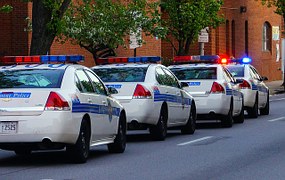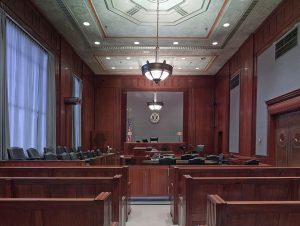 Ten years ago marijuana first became legal in parts of the United States after voters in Washington and Colorado approved recreational cannabis. Over the last decade an additional 17 states and the District of Columbia all followed suit and voted to legalize marijuana use for adults. Maryland lawmakers have been tracking these trends for years, but had been remained hesitant to make any drastic changes to cannabis policy. Rather, lawmakers have steadily been taking small bites at the apple including lowering the maximum punishment for marijuana possession, creating a medical marijuana program, and then eventually decriminalizing possession of small amounts of cannabis. This past year lawmakers in Annapolis finally proved ready to take the big plunge, though they decided to leave it up to the voters to legalize pot once and for all. Passage of the ballot measure was never really in doubt, as previous polls had revealed approximately 60 percent of Maryland voters favored marijuana legalization. A 60/40 split may not seem like a large margin, but in the election world it’s actually fairly wide. The margin however turned out to be even wider in the real vote, as the measure passed with a 65.6 percent approval. Close to 1 million voters said yes to the question of whether citizens 21 and older should be able legally use cannabis Maryland, while just over 500,000 voted no. This signaled a borderline landslide victory for the good guys.
Ten years ago marijuana first became legal in parts of the United States after voters in Washington and Colorado approved recreational cannabis. Over the last decade an additional 17 states and the District of Columbia all followed suit and voted to legalize marijuana use for adults. Maryland lawmakers have been tracking these trends for years, but had been remained hesitant to make any drastic changes to cannabis policy. Rather, lawmakers have steadily been taking small bites at the apple including lowering the maximum punishment for marijuana possession, creating a medical marijuana program, and then eventually decriminalizing possession of small amounts of cannabis. This past year lawmakers in Annapolis finally proved ready to take the big plunge, though they decided to leave it up to the voters to legalize pot once and for all. Passage of the ballot measure was never really in doubt, as previous polls had revealed approximately 60 percent of Maryland voters favored marijuana legalization. A 60/40 split may not seem like a large margin, but in the election world it’s actually fairly wide. The margin however turned out to be even wider in the real vote, as the measure passed with a 65.6 percent approval. Close to 1 million voters said yes to the question of whether citizens 21 and older should be able legally use cannabis Maryland, while just over 500,000 voted no. This signaled a borderline landslide victory for the good guys.
Now that the ballot measure passed there are a few important things to remember, as it is definitely not legal so spark up a joint on the street or fire up the basement hydroponic grow room just yet. First off, cannabis will not be legalized for recreational use until July 1 of 2023. Starting July 1, 2023 possession of up to 1.5 ounces of pot will be fully legal for adults over the age of 21 while possession of 1.5 to 2.5 ounces will constitute a civil infraction. Possession of over 2.5 ounces will be a misdemeanor punishable by 6 months in jail. On January 1, 2023 possession of up to 1.5 ounces will be decriminalized though still illegal (much like possession under 10 grams is currently). On July 1, adults will be able to grow up to two cannabis plants on their property as long as the plants are away from public view and protected from access by minors. Unlawful distribution of marijuana and possession with intent to distribute will no longer be a felony starting on July 1, but will still retain a harsh sentence of up to 3 years in jail. Mandatory expungements for past pot offenses that are no longer crimes will begin next year as well, but there is not definite timetable when recreational sales will begin. Finally, smoking in public will remain illegal, and will be punishable by a civil fine of up to $250. It is unclear whether municipalities such as Ocean City may try to enact harsher punishments as they do with open containers of alcohol.
The Blog will continue to follow Maryland marijuana policy with a close eye, and will also monitor other states and potential federal policy changes. On election day five other states provided voters with the ability to determine whether recreational cannabis would be legal, though only Maryland and Missouri voters approved the measures. Voters in Arkansas, North Dakota and South Dakota all declined to legalize marijuana. South Dakota voters had previously passed legalization in 2020, but the vote was declared invalid by the state’s highest court. If you have a question about the new marijuana laws or a past CDS case feel free to call Maryland drug crime lawyer Benjamin Herbst anytime at 410-207-2598. Benjamin specializes in manufacturing, possession with intent to distribute and drug trafficking charges such as large amount and importation. He also has extensive experience representing those charged with conspiracy and participation in a criminal gangs. Contact Benjamin to find out which defenses may be available in your state or federal drug case anytime, 7 days a week.
 Criminal Defense Lawyer Blog
Criminal Defense Lawyer Blog








